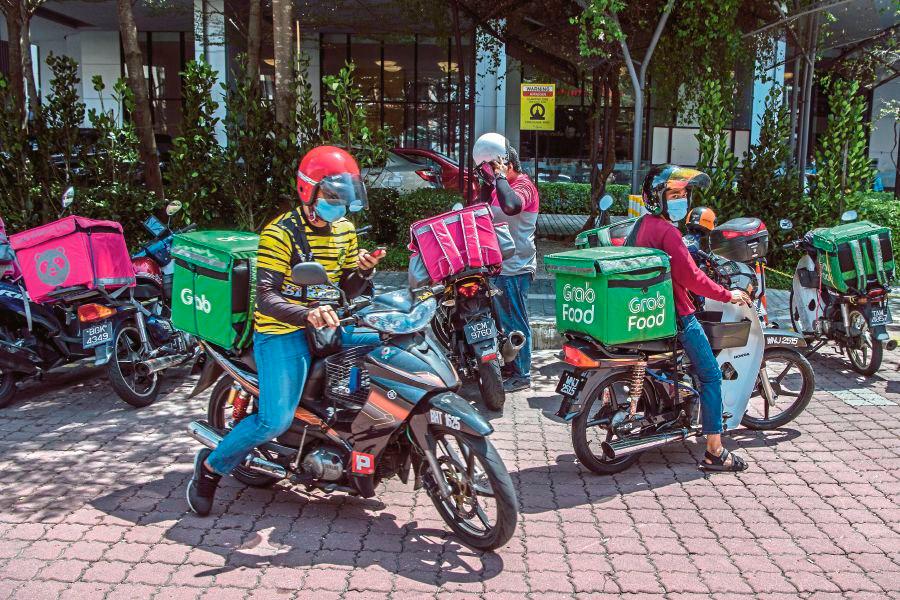PETALING JAYA: Food delivery riders provide an essential service when the country is under lockdown. Otherwise, many will have to go without dinner.
However, a large proportion of them are also a menace on the road. A study conducted by the Malaysian Institute of Road Safety Research (Miros) revealed that 70% of them disobey traffic rules when they are on a delivery run.
Stopping in the yellow box accounted for 57% of all violations, Miros chairman Datuk Suret Singh told theSun. Next is beating the red lights (16%), using the phone while riding (15%), riding against the traffic (7%) and making illegal U-turns (5%).
“Such actions can cause them to lose control of their motorcycles and cause road accidents. At high speed, it could be fatal,” Suret pointed out.
Miros is in talks with representatives of service providers such as Grab and foodpanda to address the problem.
To instil a culture of road safety in these riders, Suret said, several interventions are necessary.
“We need road safety training customised for them. Their riding skills must be enhanced and their awareness of road safety must be raised,” he said.
To this end, he said, the Transport Ministry, in collaboration with Miros and the Road Transport Department, launched a road safety campaign for p-hailing (food and parcel delivery) riders in April.
Under the programme, statistics and facts on road safety and defensive riding are shared with the riders, he added.
But, Suret said, training on road safety is only part of the solution. “Rider must also put on the proper safety attire. If they are involved in a crash, the right attire can help to reduce injury and save lives,” he said.
“When doing delivery runs at night, they should put on clothes that will enhance their visibility in the dark,” he added.
Suret said the service providers could do their part by offering monetary rewards to riders who show a clean record to promote safe riding behaviour.
Miros is now working with Kuala Lumpur City Hall and other local authorities to improve rider safety at traffic junctions by utilising the surveillance method.
Records show that motor-cyclists are the most vulnerable among road users. Statistics from the police show that there were a total of 6,176 road fatalities in 2019, and motorcyclists accounted for 3,959 or 64% of them. Last year, there were 4,653 fatalities, with motorcyclists accounting for 3,118 or 67% of the total.
Suret said that since the movement control order was imposed, the number of food delivery riders had risen to meet the demand for delivery services.
However, he said, there is insufficient data to prove that they are the main contributors to the increase in road accidents.
Back in 2019, one food delivery rider was killed and five others slightly injured in road crashes. Last year, there were 17 fatalities among them. Apart from that, 10 had serious injuries and 64 had minor injuries.
Data from the Social Security Organisation showed that there were more than 150 road crashes involving food delivery riders from March to June last year.
When contacted, Grab directed theSun to a link to a report citing its “zero tolerance policy on traffic violations and reckless driving”.
“Our riders are required to attend driver safety training and practical assessments and are equipped with helmets as well as reflective jackets,” the report said.
Grab added that it can also “gauge the road performance of drivers and riders via fatigue monitoring and telematics reports”.
Foodpanda declined to respond to theSun’s request for comments.











